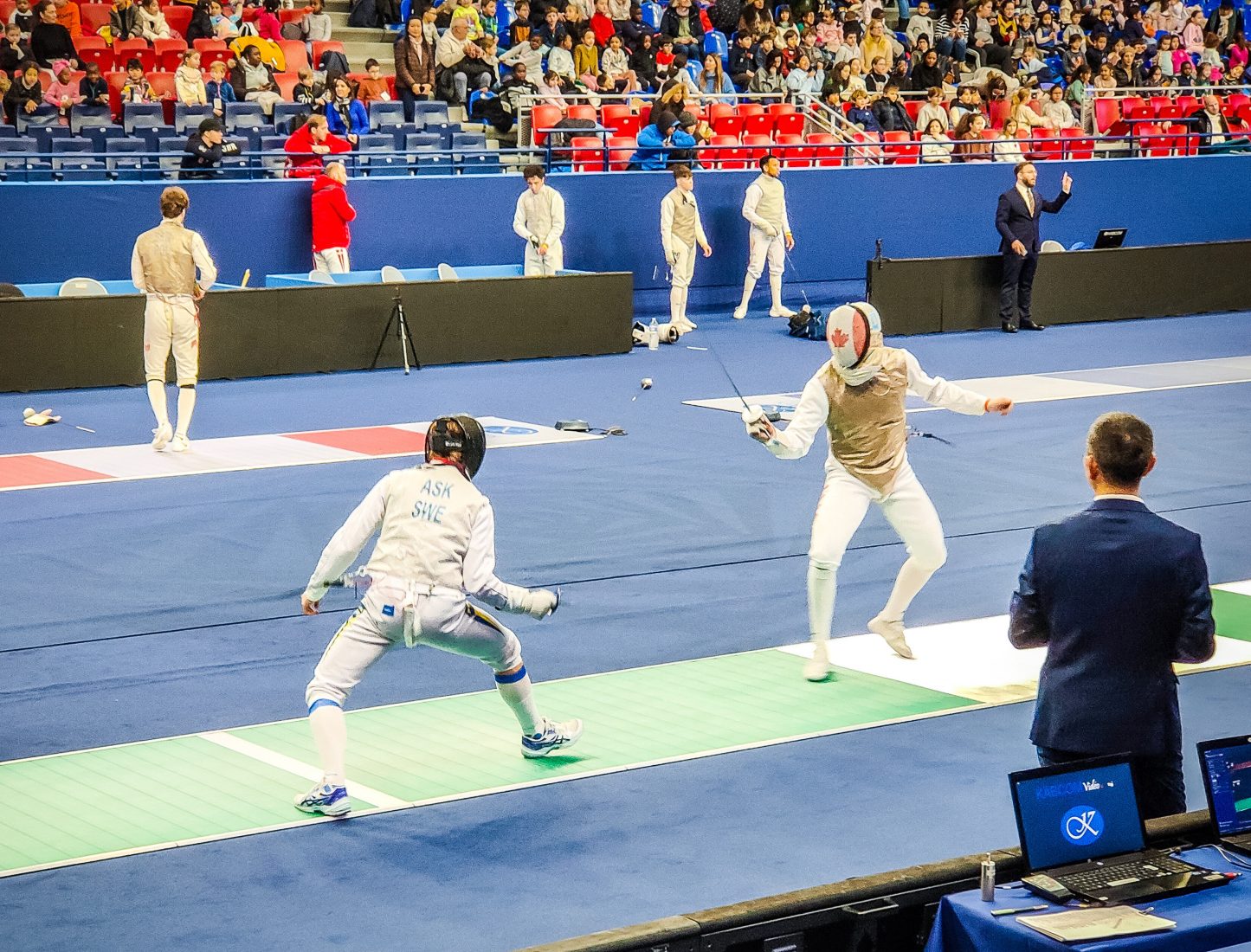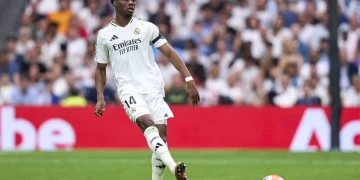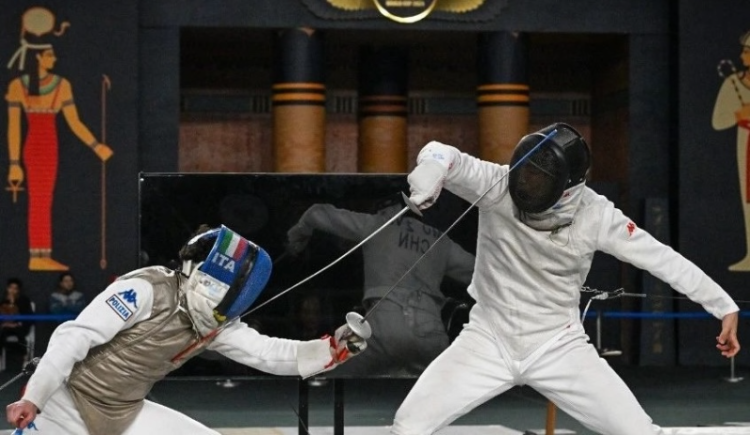Introduction:
In the world of fencing, where tradition and precision meet speed and agility, the stage is set for the emergence of new stars. The Fencing World Cup, one of the most prestigious events in the sport, consistently showcases the incredible talent and relentless determination of athletes vying for the title of World Champion. As the competition heats up, the question arises: who will be the next fencing prodigy to claim the coveted title?
Over the past few years, the landscape of fencing has seen a shift. With the rise of younger athletes and the ever-evolving techniques that have defined the sport, the Fencing World Cup is no longer dominated by the same few names year after year. The sport is becoming increasingly diverse, with new nations stepping onto the world stage and new faces rising to prominence. The question remains: which rising star will ascend to the pinnacle of fencing and secure their place in history as the next World Champion?
I. The Evolution of Fencing: A Brief Overview
Fencing has a long and storied history, dating back to the early days of combat training and knightly duels. However, it wasn’t until the late 19th century that fencing evolved into the sport we recognize today. Originally a military training exercise, fencing became formalized as a competitive discipline, with the first World Championships held in 1896.
The Fencing World Cup, a relatively recent addition to the competitive scene, has become one of the most important tournaments in the sport. Held annually in various locations around the world, the World Cup series offers a platform for fencers to showcase their skills, earn ranking points, and ultimately qualify for the World Championships and the Olympic Games.
II. The Rise of New Stars: How the Next Champion Will Emerge
In recent years, a number of young fencers have begun to make their mark on the international scene. From upsets in individual events to consistently strong performances across the World Cup series, these athletes have demonstrated that the future of fencing is in capable hands. So, who are these rising stars, and what makes them stand out in such a competitive field?
A. The Technical Evolution: Adaptation to Modern Fencing
The evolution of fencing techniques has played a significant role in the rise of new champions. Today’s fencers are not just skilled with the blade but are also incredibly strategic and adaptive. The sport has become faster and more dynamic, with fencers requiring not only exceptional physical conditioning but also a sharp mind to anticipate their opponent’s moves and adapt their tactics mid-fight.
New champions are often those who can embrace the changes in technique and strategy. The dominance of traditional techniques, such as the lunge and parry, has been countered by more fluid, unpredictable movements and counter-attacks. This evolution has leveled the playing field, allowing young fencers with unique styles to carve their own path to the top.
B. The Mental Game: Resilience and Focus
In a sport as mentally demanding as fencing, the psychological aspect of competition cannot be underestimated. Fencers must possess an unwavering focus, the ability to stay calm under pressure, and the resilience to recover from setbacks. It’s no surprise that the most successful fencers have not only exceptional physical skills but also a strong mental game.
The next world champion will likely be a fencer who can handle the pressure of high-stakes competition, maintain focus in the heat of battle, and bounce back from difficult situations. The ability to remain mentally sharp throughout the tournament is essential, and fencers who master this aspect of the sport are often the ones who rise to the top.
C. Globalization of Fencing: New Countries and New Rivals
The sport of fencing has traditionally been dominated by a handful of countries, with France, Italy, and Russia leading the charge. However, in recent years, the global reach of fencing has expanded, with countries from all over the world making strides on the international scene.
Nations like South Korea, the United States, China, and Hungary have seen a surge in the number of talented young fencers, and the competitive landscape is shifting. The influx of new talent from diverse backgrounds means that the next world champion could very well come from an unexpected place, adding an exciting element of unpredictability to the sport.
III. The Current Contenders: Who Are the Rising Stars?
As we look toward the next generation of fencing champions, several rising stars have already captured the attention of the global fencing community. These athletes have displayed incredible talent, consistency, and a hunger for success. While it’s impossible to predict the future with certainty, these contenders are poised to leave their mark on the sport.
A. Lisa Schmidl (Germany)
Lisa Schmidl, a young German saber fencer, has already made a name for herself in the Fencing World Cup series. With a fluid and fast-paced style, she has dominated several competitions in recent years, earning her a spot among the top-ranked fencers in the world. Schmidl’s ability to stay calm under pressure and execute precise, explosive attacks makes her one of the most promising athletes to watch.
B. Lee Kyou-hyun (South Korea)
South Korea has become a powerhouse in fencing in recent years, and Lee Kyou-hyun is at the forefront of this rise. His combination of agility, speed, and tactical awareness has made him a formidable opponent on the international stage. With several World Cup titles under his belt, Lee is considered one of the brightest prospects in men’s fencing.
C. Alessandra Sablone (Italy)
As one of the youngest members of the Italian national team, Alessandra Sablone has already made significant waves in the fencing world. Her aggressive and strategic approach to foil fencing has earned her multiple podium finishes in World Cup events, and she is widely regarded as one of the future stars of the sport.

IV. Challenges on the Road to the Top
While the rise of new stars is an exciting prospect, the road to becoming a world champion is never easy. Fencers face numerous challenges along the way, including injuries, tough competition, and the pressure of living up to expectations.
One of the biggest challenges faced by rising stars is consistency. Fencing is a sport where one small mistake can lead to a loss, and fencers must maintain peak performance throughout the entire tournament season. Balancing training, competition, and recovery is a delicate process, and the mental toll of high-level competition can be overwhelming.
Moreover, the intense rivalry between nations adds another layer of complexity. With every major fencing nation vying for supremacy, young fencers must not only excel in their individual performances but also represent their country on the world stage. This can create additional pressure, especially for those who are still finding their footing in the international scene.
V. The Future of Fencing: What Lies Ahead?
As the Fencing World Cup continues to evolve, the future of the sport looks promising. With a growing pool of talent from across the globe and a shift toward more dynamic and unpredictable fencing techniques, the next generation of champions is set to push the boundaries of what is possible on the piste.
The question of who will become the next world champion is still up in the air, but one thing is certain: the future of fencing is in good hands. The young athletes emerging today are shaping the future of the sport, and we can expect to see a new era of champions rise to the top in the coming years.
Conclusion:
In conclusion, the Fencing World Cup has provided a platform for rising stars to showcase their talent and chase their dreams of becoming the next world champion. The sport is evolving, with new techniques, strategies, and athletes pushing the boundaries of what is possible on the piste. As the competition continues to grow and develop, we are left with the exciting question of who will emerge as the next fencing legend. While no one can predict the future, it’s clear that the next world champion is out there, ready to make their mark on the sport.






























Discussion about this post